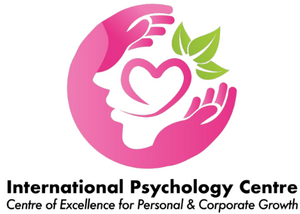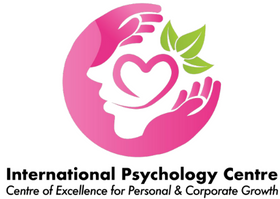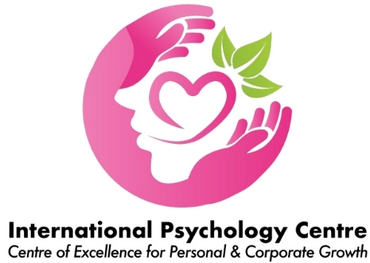What is depression?
Sadness or downswings in mood are normal reactions to life’s struggles, setbacks, and disappointments. Many people use the word “depression” to explain these kinds of feelings, but depression is much more than just sadness.
Some people describe depression as “living in a black hole” or having a feeling of impending doom. However, some depressed people don't feel sad at all—they may feel lifeless, empty, and apathetic, or men in particular may even feel angry, aggressive, and restless.
Whatever the symptoms, depression is different from normal sadness in that it engulfs your day-to-day life, interfering with your ability to work, study, eat, sleep, and have fun. The feelings of helplessness, hopelessness, and worthlessness are intense and unrelenting, with little, if any, relief.
Are you depressed?
If you identify with several of the following signs and symptoms—especially the first two—and they just won’t go away, you may be suffering from depression
- you feel hopeless and helpless
- you’ve lost interest in friends, activities, and things you used to enjoy
- you feel tired all the time
- your sleep and appetite has changed
- you can’t concentrate or find that previously easy tasks are now difficult
- you can’t control your negative thoughts, no matter how much you try
- you are much more irritable, short-tempered, or aggressive than usual
- you’re consuming more alcohol than normal or engaging in other reckless behavior
What are the signs and symptoms of depression?
Depression varies from person to person, but there are some common signs and symptoms. It’s important to remember that these symptoms can be part of life’s normal lows. But the more symptoms you have, the stronger they are, and the longer they’ve lasted—the more likely it is that you’re dealing with depression. When these symptoms are overwhelming and disabling, that's when it's time to seek help.
- Feelings of helplessness and hopelessness. A bleak outlook—nothing will ever get better and there’s nothing you can do to improve your situation
- Loss of interest in daily activities. No interest in former hobbies, pastimes, social activities, or sex. You’ve lost your ability to feel joy and pleasure.
- Appetite or weight changes. Significant weight loss or weight gain—a change of more than 5% of body weight in a month.
- Sleep changes. Either insomnia, especially waking in the early hours of the morning, or oversleeping (also known as hypersomnia).
- Anger or irritability. Feeling agitated, restless, or even violent. Your tolerance level is low, your temper short, and everything and everyone gets on your nerves.
- Loss of energy. Feeling fatigued, sluggish, and physically drained. Your whole body may feel heavy, and even small tasks are exhausting or take longer to complete.
- Self-loathing. Strong feelings of worthlessness or guilt. You harshly criticize yourself for perceived faults and mistakes.
- Reckless behavior. You engage in escapist behavior such as substance abuse, compulsive gambling, reckless driving, or dangerous sports.
- Concentration problems. Trouble focusing, making decisions, or remembering things.
- Unexplained aches and pains. An increase in physical complaints such as headaches, back pain, aching muscles, and stomach pain.
Depression and suicide risk
Depression is a major risk factor for suicide. The deep despair and hopelessness that goes along with depression can make suicide feel like the only way to escape the pain. If you have a loved one with depression, take any suicidal talk or behavior seriously and learn to recognize the warning signs.
Warning signs of suicide include:
- Talking about killing or harming one’s self
- Expressing strong feelings of hopelessness or being trapped
- An unusual preoccupation with death or dying
- Acting recklessly, as if they have a death wish (e.g. speeding through red lights)
- Calling or visiting people to say goodbye
- Getting affairs in order (giving away prized possessions, tying up loose ends)
- Saying things like “Everyone would be better off without me” or “I want out”
- A sudden switch from being extremely depressed to acting calm and happy
The different faces of depression
Depression often looks different in men and women, and in young people and older adults. An awareness of these differences helps ensure that the problem is recognized and treated.
What are the types of depression?
Depression comes in many shapes and forms. The different types of depression have unique symptoms, causes, and effects. Knowing what type of depression you have can help you manage your symptoms and get the most effective treatment
Depression causes and risk factors
Some illnesses have a specific medical cause, making treatment straightforward. If you have Type-1 diabetes, you take insulin. If you have appendicitis, you have surgery. Depression, however, is more complicated. Depression is not just the result of a chemical imbalance in the brain, and it’s not simply cured with medication. Experts believe that depression is caused by a combination of biological, psychological, and social factors. In other words, your lifestyle choices, relationships, and coping skills matter just as much—if not more so—than genetics. However, certain risk factors make you more vulnerable to depression.
- Loneliness
- Lack of social support
- Recent stressful life experiences
- Family history of depression
- Marital or relationship problems
- Financial strain
- Early childhood trauma or abuse
- Alcohol or drug abuse
- Unemployment or underemployment
- Health problems or chronic pain
The road to depression recovery
Just as the symptoms and causes of depression are different in different people, so are the ways to feel better. What works for one person might not work for another, and no one treatment is appropriate in all cases. If you recognize the signs of depression in yourself or a loved one, take some time to explore the many treatment options. In most cases, the best approach involves a combination of social support, lifestyle changes, emotional skills building, and professional help.
Ask for help and support
weak or you can’t change! The key to depression recovery is to start small and ask for help. The simple act of talking to someone face to face about how you feel can be an enormous help. The person you talk to doesn’t have to be able to fix you; he or she just needs to be a good listener. Having a strong support system will speed your recovery. Isolation fuels depression, so reach out to others, even if you feel like being alone or don’t want to feel like a burden to others. The truth is that most people will be happy that you chose to confide in them; they’ll be flattered that you trust them enough to open up. So, let your family and friends know what you’re going through and how they can support you.
Seek professional help
If support from family and friends, positive lifestyle changes, and emotional skills building aren’t enough, seek help from a mental health professional. There are many effective treatments for depression, including therapy, medication, and alternative treatments. Learning about your options will help you decide what measures are most likely to work best for your particular situation and needs.
Are antidepressants right for you?
Medication can help relieve the symptoms of depression in some people, but they aren’t a cure and they come with drawbacks of their own. Learning the facts about antidepressants and weighing the benefits against the risks can help you make an informed and personal decision about whether medication is right for you.
Effective treatment for depression often includes some form of therapy. Therapy gives you tools to treat depression from a variety of angles. Also, what you learn in therapy gives you skills and insight to prevent depression from coming back.
Some types of therapy teach you practical techniques on how to reframe negative thinking and employ behavioral skills in combating depression. Therapy can also help you work through the root of your depression, helping you understand why you feel a certain way, what your triggers are for depression, and what you can do to stay healthy
Related Services
Share To
Professional Certification Course (100% Online)
You can connect with a psychologist anytime, anywhere.
Click here to know more





